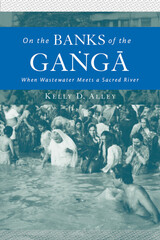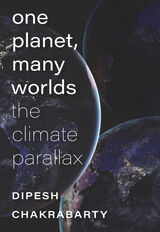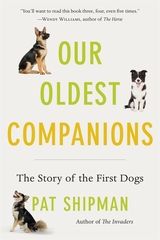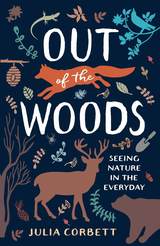4 start with O start with O

Alley investigates ethno-semantic, discursive, and institutional data to flesh out the interplay between religious, scientific, and official discourses about the river Ganga. Using a new outward layering methodology, she points out that anthropological analysis must separate the historical and discursive strands of the debates concerning waste and sacred purity in order to reveal the cultural complexities that surround the Ganga. Ultimately, she addresses a deeply rooted cultural paradox: if the Ganga river is considered sacred by Hindus across India, then why do the people allow it to become polluted?
Examining areas of contemporary concern such as water usage and urban waste management in the most populated river basin in the world, this book will appeal to anthropologists and readers in religious, environmental, and Asian studies, as well as geography and law.
Kelly D. Alley is Associate Professor and Director of Anthropology at Auburn University. In addition to being a prolific writer, she has conducted research on public culture and environmental issues in northern India for over a decade. Alley is currently overseeing a project to ameliorate river pollution problems in India.

Climate change represents a deep conundrum for humans. It is difficult for humans to give up the unequal and yet accelerating pursuit of a good life based on an insatiable appetite for energy sourced mainly from fossil fuel. But the same pursuit, scientists insist, damages the geobiological system that supports the existence of interrelated forms of life, including ours, on this planet. The planet, seen thus, is one. The global sway of financial and extractive capital connects humans technologically, but they remain divided along multiple axes of inequality. Their worlds are many and their politics still global rather than planetary. In the narrative presented here, Chakrabarty continues to explore the temporal and intellectual fault lines that mark the collapse of the global and the planetary in human history.

How did the dog become man’s best friend? A celebrated anthropologist unearths the mysterious origins of the unique partnership that rewrote the history of both species.
Dogs and humans have been inseparable for more than 40,000 years. The relationship has proved to be a pivotal development in our evolutionary history. The same is also true for our canine friends; our connection with them has had much to do with their essential nature and survival. How and why did humans and dogs find their futures together, and how have these close companions (literally) shaped each other? Award-winning anthropologist Pat Shipman finds answers in prehistory and the present day.
In Our Oldest Companions, Shipman untangles the genetic and archaeological evidence of the first dogs. She follows the trail of the wolf-dog, neither prehistoric wolf nor modern dog, whose bones offer tantalizing clues about the earliest stages of domestication. She considers the enigma of the dingo, not quite domesticated yet not entirely wild, who has lived intimately with humans for thousands of years while actively resisting control or training. Shipman tells how scientists are shedding new light on the origins of the unique relationship between our two species, revealing how deep bonds formed between humans and canines as our guardians, playmates, shepherds, and hunters.
Along the journey together, dogs have changed physically, behaviorally, and emotionally, as humans too have been transformed. Dogs’ labor dramatically expanded the range of human capability, altering our diets and habitats and contributing to our very survival. Shipman proves that we cannot understand our own history as a species without recognizing the central role that dogs have played in it.

Have you ever wondered about society’s desire to cultivate the perfect lawn, why we view some animals as “good” and some as “bad,” or even thought about the bits of nature inside everyday items–toothbrushes, cell phones, and coffee mugs? In this fresh and introspective collection of essays, Julia Corbett examines nature in our lives with all of its ironies and contradictions by seamlessly integrating personal narratives with morsels of highly digestible science and research. Each story delves into an overlooked aspect of our relationship with nature—insects, garbage, backyards, noise, open doors, animals, and language—and how we cover our tracks.
With a keen sense of irony and humor and an awareness of the miraculous in the mundane, Julia recognizes the contradictions of contemporary life. She confronts the owner of a high-end market who insists on keeping his doors open in all temperatures. Takes us on a trip to a new mall with a replica of a trout stream that once flowed nearby. The phrase “out of the woods” guides us through layers of meaning to a contemplation of grief, remembrance, and resilience.
Out of the Woods leads to surprising insights into the products, practices, and phrases we take for granted in our everyday encounters with nature and encourages us all to consider how we might re-value or reimagine our relationships with nature in our everyday lives.
READERS
Browse our collection.
PUBLISHERS
See BiblioVault's publisher services.
STUDENT SERVICES
Files for college accessibility offices.
UChicago Accessibility Resources
home | accessibility | search | about | contact us
BiblioVault ® 2001 - 2024
The University of Chicago Press









